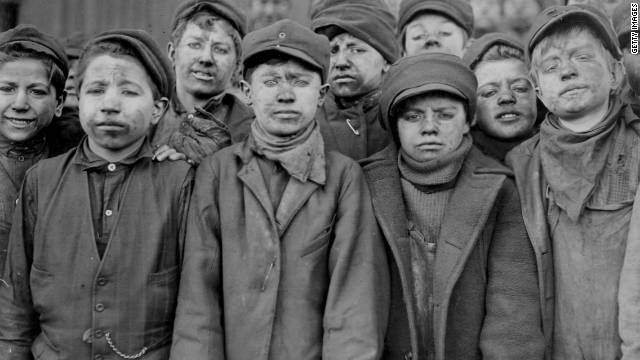Midpack
Give me a museum and I'll fill it. (Picasso) Give me a forum ...
While contemplating the often discussed views on today's work environment, I ran into this article, and thought it was worth reading.
Many people have a low opinion of employers today, indeed it drives many here to pursue FIRE. But how did it happen, employers didn't just quit valuing employees out of the blue. Nor did a generation (largely boomers) just wake up greedier than preceding generations.
In another thread, a member was lamenting the good old days when corporations cared about their employees (promotions, benefits, training, good wages). But why is that, employers weren't simply kinder or more generous in the good old days (the early years of union formation just one past counter example).
I have my views as to the underlying reasons for the historical ebb and flow of employee relations, involving at it's core the desire to pursue wealth from top to bottom - we've all had a hand in it even if most choose to believe otherwise. Beyond that I'll leave it for comment, and just offer the future "punch line" from the articles author - with the pendulum swinging at least in part toward employees once again.
How the cult of shareholder value wrecked American business
Many people have a low opinion of employers today, indeed it drives many here to pursue FIRE. But how did it happen, employers didn't just quit valuing employees out of the blue. Nor did a generation (largely boomers) just wake up greedier than preceding generations.
In another thread, a member was lamenting the good old days when corporations cared about their employees (promotions, benefits, training, good wages). But why is that, employers weren't simply kinder or more generous in the good old days (the early years of union formation just one past counter example).
I have my views as to the underlying reasons for the historical ebb and flow of employee relations, involving at it's core the desire to pursue wealth from top to bottom - we've all had a hand in it even if most choose to believe otherwise. Beyond that I'll leave it for comment, and just offer the future "punch line" from the articles author - with the pendulum swinging at least in part toward employees once again.
How the cult of shareholder value wrecked American business
My guess is that it will be a new generation of employees that finally frees the American corporation from the *shareholder-value straightjacket. Young people — particularly those with skills that are in high demand — today are drawn to work that not only pays well but also has meaning and social value. As the economy improves and the baby boom generation retires, companies that have reputations as ruthless maximizers of short-term profits will find themselves on the losing end of the global competition for talent. In an era of plentiful capital, it will be skills, knowledge, creativity and experience that will be in short supply, with those who have it setting the norms of corporate behavior.
Last edited:

